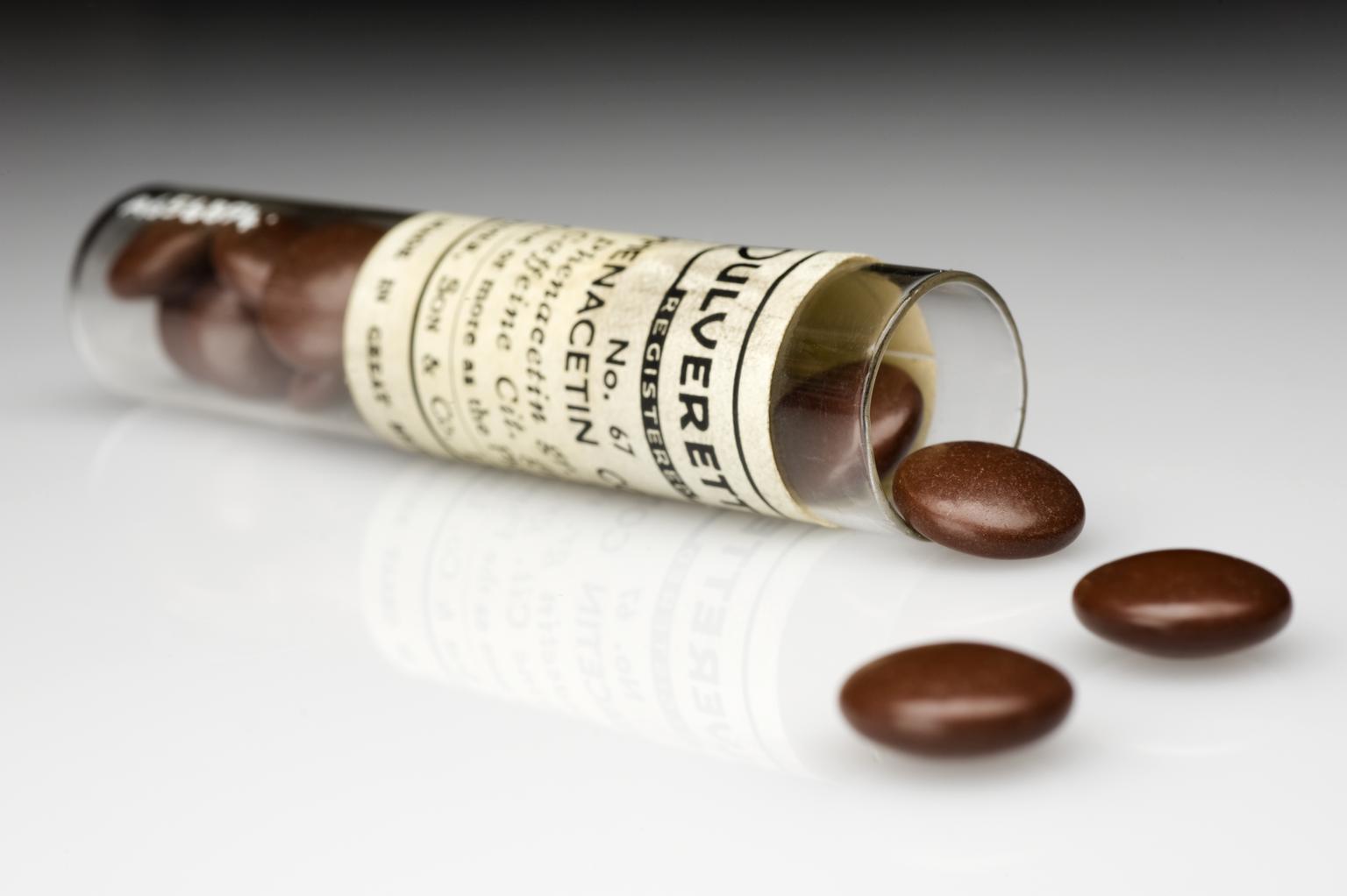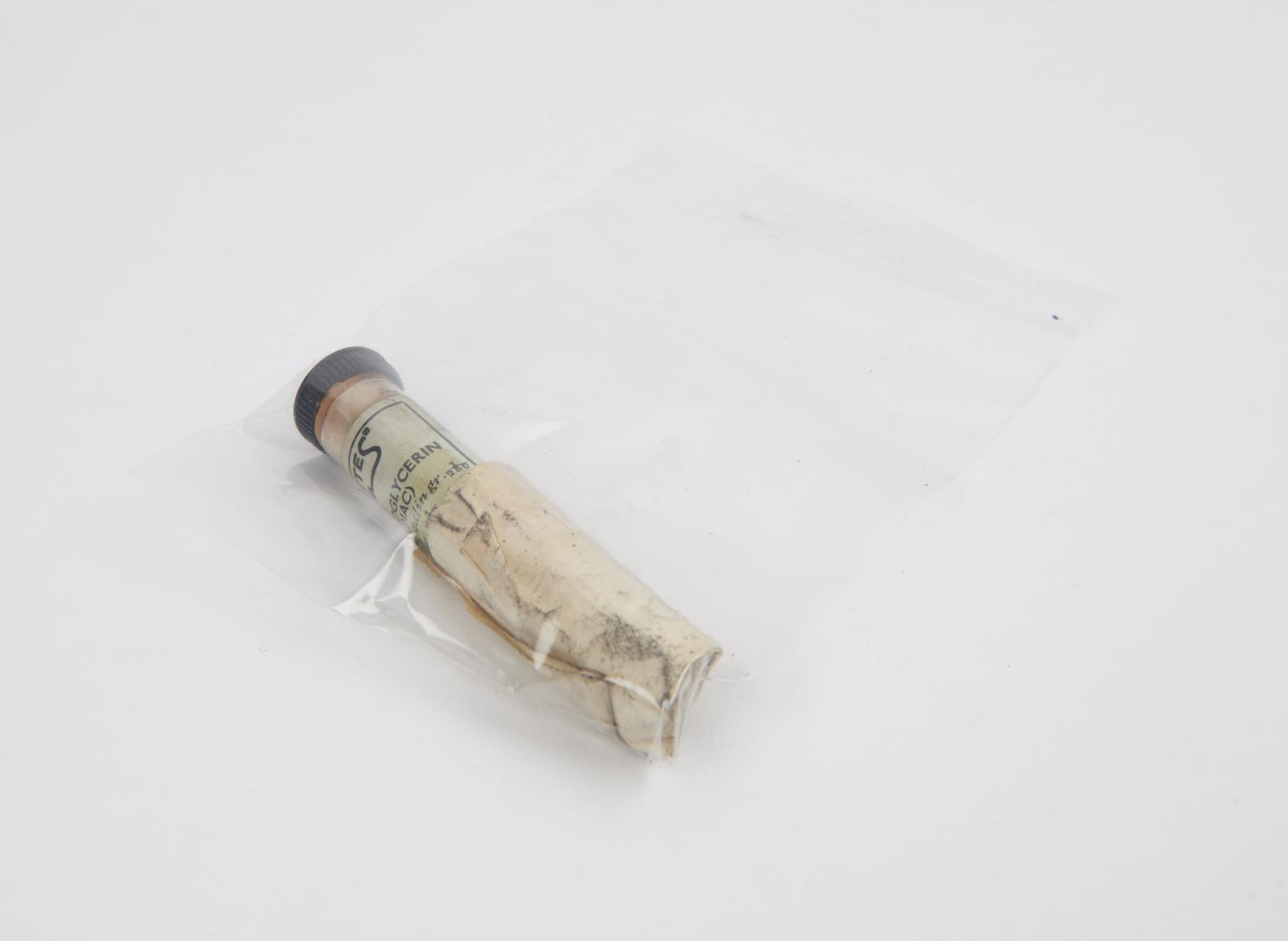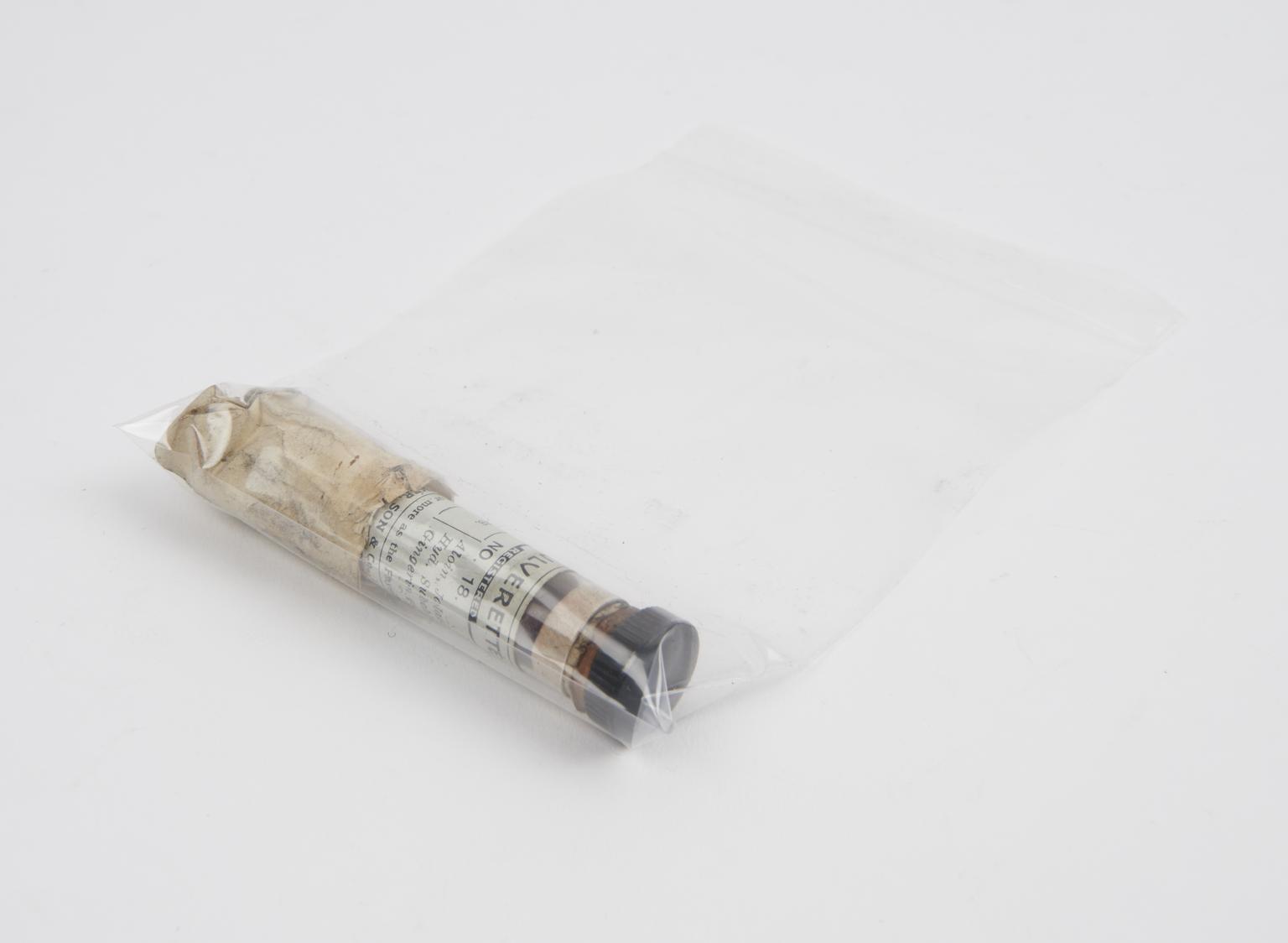Clear glass bottle for palatinoids no.2917
Clear glass bottle for palatinoids no.2917, for toothache and neuralgia, cork and plastic stopper

Black leather pocket dispensary, long rectangular folding wallet with flaps, catch at front, containing 12 bottles, Oppenheimer, Son and Co., London, maker, English, 1880-1920
Clear glass bottle for palatinoids no.2917, for toothache and neuralgia, cork and plastic stopper
Glass tube with plastic and cork stopper of gr.5 'Hypnogen' palatinoids (barbital). 84 mm x 19 mm diameter, 19 g. Oppenheimer, Son and Co. Ltd., London, 1940-1960.
Clear glass bottle for palatinoids no.7362, to stimulate muscular contraction of the uterus, with tablet content
Clear glass bottle for palatinoids no.200, a laxative of particular value in jaundice and catarrh, with content
Clear glass bottle for Bipalainoids no.1218, for carminative and antispasdomic purposes, with content
Clear glass bottle for Cocoids mercurous chloride tablets an alternative and purgative, with content
Clear glass bottle for trinitrin or nitroglycerin, valuable in angina pectoris, with content
Clear glass bottle for Acetosal or aspirin, Pulverettes no.4, with contents

Clear glass bottle for Pulverettes no.67, phenacetin comp. for neuralgia and migraine, with content
This clear glass bottle contains Pulverettes of Phenacetin. It was used for neuralgia and migraine. Phenacetin is an analgesic. This is a painkiller and fever reducer. It acts on the central nervous system. Phenacetin was first used in 1887. It was used extensively in ‘over the counter’ medications. This example was produced in London by chemist Oppenheimer, Son and Company Limited.
The drug was withdrawn from the US market in 1983 because of suspected links with kidney disease.

Clear glass bottle for Palverettes no.36, a heart tonic, broken bottle with paper wrapper, with content

Clear glass bottle for Pulverettes no.18, Aperiens Fort, with content
Glass tube with cork stopper full of Pulverette brand 5 gr. Dover Powder tablets (Pulv. Ipecac. Co.), full. 82 mm x 15 mm diameter, 15 g. Oppenheimer Son & Co. Ltd., London, 1880-1920.
Piece of folded paper with list of contents of pocket dispensary with therapeutics notes on the preparations
Black leather pocket dispensary wallet, without contents (see other parts for rest), by Oppenheimer, Son and Co., London, maker, English, 1880-1920